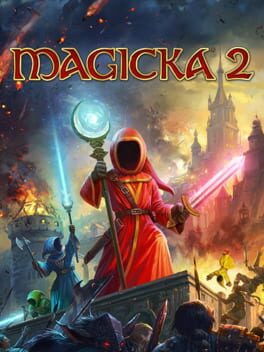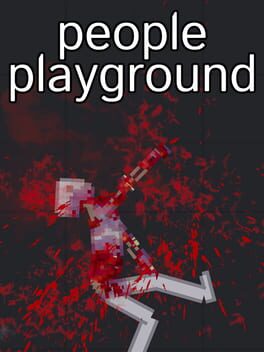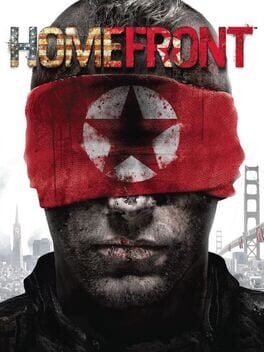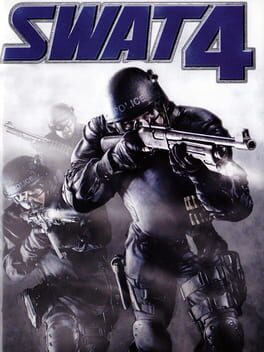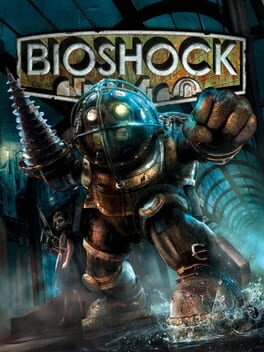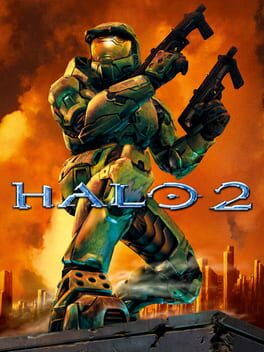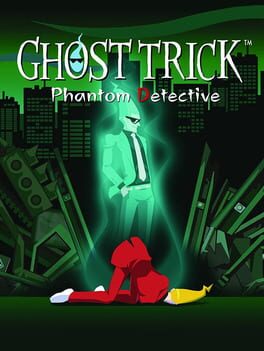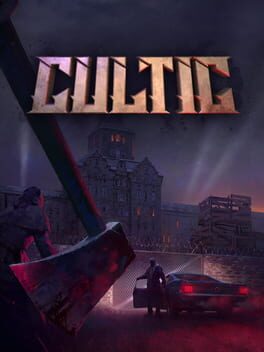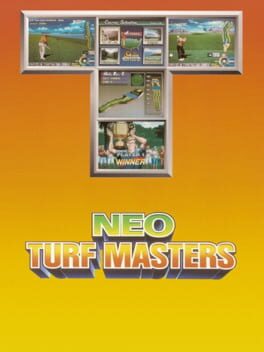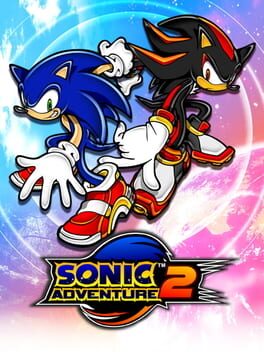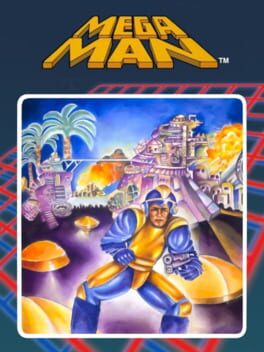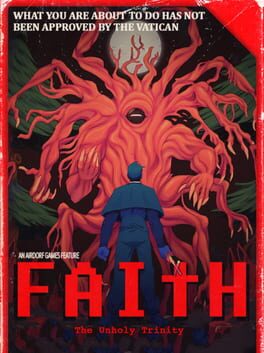Chef033
2015
What if we took the first game and removed all the fun, because it made players too strong?
Gone are the lightning bolts. Gone are the blue screens. Gone is encasing yourself in ice and rock spike armor, casting haste on yourself, and gibbing bosses instantly by running into them. Gone is anything remotely resembling a good time, all in the name of balance, and when you are done what you have left is a duller, slower, inferior game. Just play Magicka 1 instead.
Gone are the lightning bolts. Gone are the blue screens. Gone is encasing yourself in ice and rock spike armor, casting haste on yourself, and gibbing bosses instantly by running into them. Gone is anything remotely resembling a good time, all in the name of balance, and when you are done what you have left is a duller, slower, inferior game. Just play Magicka 1 instead.
2019
2011
A boring linear 7th gen shooter that somehow elevates itself from being completely forgettable to being completely abhorrent by virtue of the writing. The North Koreans are presented as near-literal inhuman monsters and somehow the resistance is still more unlikable. The number of times your squad mates pull an "oopsie" to lose the hearts-and-minds war like telling starving beggar children to fuck off or dropping white phosphorous on their own guys almost makes me think someone on the writing team was deliberately sabotaging this game's America-First message. It's kind of incredible.
2005
2013
When this game came out, the world loved it and hailed it as a masterpiece, and I sat by on the sidelines feeling as though I were taking crazy pills for thinking it was such a massive piece of shit. Thankfully time has vindicated me and more people are now willing to look back on this overrated trash with the critical thrashing it should have received when it dropped on the gaming world back in 2013.
Perhaps the epitome of boring, linear, two-weapon stop-and-pop shooters in a generation defined by boring, linear, two-weapon stop-and-pop shooters, Bioshock Infinite manages to stand head and shoulders above the crowd by being morally repugnant, cowardly, and stupid all at the same time. Too afraid to take a stance on slavery of all things, Bioshock Infinite asserts that the moment the oppressed picks up a gun to fight their oppressor, they are Just As Bad. This juvenile view of justice seems to be a critique of political extremes but ironically casts a shadow over the founding of its country of origin, not to mention, uh, The Civil War. You know, that one that freed all the black people in America? That one.
The cherry on top is that the story is nonsensical garbage riddled with plot holes and predicated on a misunderstanding of how the many worlds theory works. Ken Levine admitted as much in an interview, saying he decided to write a game about quantum mechanics "because they make him feel stupid for not understanding them." You're probably already putting this together in your head, but writing a plot about a field of science you do not understand is probably not a good idea.
Oh well. At least the gameplay is good, right?
...Oh.
Perhaps the epitome of boring, linear, two-weapon stop-and-pop shooters in a generation defined by boring, linear, two-weapon stop-and-pop shooters, Bioshock Infinite manages to stand head and shoulders above the crowd by being morally repugnant, cowardly, and stupid all at the same time. Too afraid to take a stance on slavery of all things, Bioshock Infinite asserts that the moment the oppressed picks up a gun to fight their oppressor, they are Just As Bad. This juvenile view of justice seems to be a critique of political extremes but ironically casts a shadow over the founding of its country of origin, not to mention, uh, The Civil War. You know, that one that freed all the black people in America? That one.
The cherry on top is that the story is nonsensical garbage riddled with plot holes and predicated on a misunderstanding of how the many worlds theory works. Ken Levine admitted as much in an interview, saying he decided to write a game about quantum mechanics "because they make him feel stupid for not understanding them." You're probably already putting this together in your head, but writing a plot about a field of science you do not understand is probably not a good idea.
Oh well. At least the gameplay is good, right?
...Oh.
2007
Tense, beautiful, and lots of fun for the first hour, while it still feels like System Shock 2. Then the power creep sets in and you accumulate too many resources and powers for any enemy to be even remotely threatening ever again.
Bioshock was a victim of being dumbed down for mainstream audiences; the game is, sadly, too afraid to keep resources tight and enemies dangerous for more than the first level or so. Your first big daddy fight is an exercise in meticulously planning an encounter and then surviving the execution, and feels great. But once you begin effortlessly hacking every vending machine in sight and are literally tripping over health and ammo supplies, the thrill of boss fights and tension of counting bullets and health hypos is gone, never to return. Play System Shock 2 instead.
Bioshock was a victim of being dumbed down for mainstream audiences; the game is, sadly, too afraid to keep resources tight and enemies dangerous for more than the first level or so. Your first big daddy fight is an exercise in meticulously planning an encounter and then surviving the execution, and feels great. But once you begin effortlessly hacking every vending machine in sight and are literally tripping over health and ammo supplies, the thrill of boss fights and tension of counting bullets and health hypos is gone, never to return. Play System Shock 2 instead.
2004
A gem among gems among gems, tragically overlooked in its time and still criminally underappreciated, not by those who have played it but by those who don't even know it exists.
Ghost Trick is Shu Takumi's masterpiece, a thrilling mystery with exciting stakes layered atop an emotionally moving story populated by a charming, lovable cast of characters, and all of this is hidden inside a silly little puzzle game released with little fanfare for the Nintendo DS in 2010. This game has made me laugh, it has made me cry, it has made my jaw drop with every revelation. It has done this countless times over the years with each replay or friend I convince to play it, and every time I wish I could wipe my memory of the game and experience it again for the first time.
What really helps seal the deal is that Ghost Trick is an easy game to recommend because it is an easy game to play, without losing any merit for its accessibility. Anyone can play (and love) Ghost Trick. It's only about 12 hours long at most and can be described past a certain point as a series of plot twists, so if any of this has you intrigued then I implore you to do absolutely no research about this game and jump in blind. You'd be doing yourself a service.
Ghost Trick is Shu Takumi's masterpiece, a thrilling mystery with exciting stakes layered atop an emotionally moving story populated by a charming, lovable cast of characters, and all of this is hidden inside a silly little puzzle game released with little fanfare for the Nintendo DS in 2010. This game has made me laugh, it has made me cry, it has made my jaw drop with every revelation. It has done this countless times over the years with each replay or friend I convince to play it, and every time I wish I could wipe my memory of the game and experience it again for the first time.
What really helps seal the deal is that Ghost Trick is an easy game to recommend because it is an easy game to play, without losing any merit for its accessibility. Anyone can play (and love) Ghost Trick. It's only about 12 hours long at most and can be described past a certain point as a series of plot twists, so if any of this has you intrigued then I implore you to do absolutely no research about this game and jump in blind. You'd be doing yourself a service.
2022
Phenomenal. Feels like a compilation of good ideas from all the best shooters of the last three decades. After some control configuration, I was sliding beneath machine gun volleys and blasting cultists in the face, kicking thrown axes back to their wielders, setting traps with molotovs and no-scoping enemies from across the map with what can only be described as one of the most satisfying magnums in shooter history. The next moment I'd find myself wandering misty forests and eerie asylums in silence, the game effortlessly dancing back and forth between atmospheric horror and high-octane action with a finesse that makes FEAR look clumsy.
The blend of speed and punchiness in this game's combat loop is unlike anything I've felt from a shooter in years. The guns look good, sound good, and feel great. Like one of its biggest inspirations - Blood - the TNT and molotov throwables are the breakout stars of the game's weapon arsenal. The TNT alone offers you a multitude of options in combat - you can light and throw, split the bundle for a wider cluster of smaller explosions, or throw an unlit bundle and detonate it with weapons fire. If you flub a throw, you can kick the bundle towards the enemy. You can kick an enemy's TNT back at him. You can shoot the axes or dynamite he throws at you out of the air. If it sounds like a cool idea, Jason Smith probably put it in the game.
This wide array of verbs at your disposal encapsulates CULTIC's greatest strength - the flexibility of its combat system. There are so many ways to handle any given encounter, not only because so much of the level design allows you to tackle areas of any given map piecemeal, at your own pace, but also because your movement and attack options are so open-ended. While every tool has its purpose, at no point is player expression sacrificed for "hard counters" like some of the more restrictive shooters of this generation (looking at you, Doom Eternal.)
Enemy variety is diverse and interesting across the board, and unlike many throwback shooters their place in the world doesn't feel arbitrary - cultists are where you expect cultists to be, beasts and the undead where you would expect them, all feeling like they were doing something before your arrival, the inhabitants of the world leaving clues for you in the form of memos and notes peppered throughout. In this sense its setting and scenario bears a great resemblance to another of its clear inspirations - Resident Evil 4.
Despite a rather run-of-the-mill "cult in a small town's backwoods" plot, the game oozes atmosphere and personality - it's all in the presentation. The art direction looks fantastic, achieving a moody atmosphere with a really nice color palette (especially if the color filter is turned off, which I prefer) wider than many lesser throwback shooters, and the soundtrack is killer, ranging from mood-setting bassy ambience to thumping synth-backed action tracks. At one point an entire level of the former transformed into the latter as I entered the final room and was met with a massive shootout - the somber leitmotif that came before repeating itself in the combat version of the song, except that the moody piano melody had given way to a wailing synth keyboard. It was probably around this time that it clicked with me that this game was something special.
I sat through this game for about 7 hours, took a break to eat, and quickly realized I still wanted to play. I picked it back up and finished in another two hours, and immediately after doing so I was compelled to start the game again on a higher difficulty. I was hooked, and I'm still hooked.
It's easy to designate CULTIC as another in a sea of retro-inspired shooters at a time when the market is flooded, but in practice it feels like so much more than that. It carries with it the DNA of its inspirations - DOOM, Blood, Resident Evil, and more, but has a strong personality all its own. It's really difficult to overstate how refreshing this game truly is after I've found myself growing tired lately with shooters wearing the skin of the classics, but lacking their heart. CULTIC, on the other hand, has no shortage of heart - freshly harvested and still beating.
The blend of speed and punchiness in this game's combat loop is unlike anything I've felt from a shooter in years. The guns look good, sound good, and feel great. Like one of its biggest inspirations - Blood - the TNT and molotov throwables are the breakout stars of the game's weapon arsenal. The TNT alone offers you a multitude of options in combat - you can light and throw, split the bundle for a wider cluster of smaller explosions, or throw an unlit bundle and detonate it with weapons fire. If you flub a throw, you can kick the bundle towards the enemy. You can kick an enemy's TNT back at him. You can shoot the axes or dynamite he throws at you out of the air. If it sounds like a cool idea, Jason Smith probably put it in the game.
This wide array of verbs at your disposal encapsulates CULTIC's greatest strength - the flexibility of its combat system. There are so many ways to handle any given encounter, not only because so much of the level design allows you to tackle areas of any given map piecemeal, at your own pace, but also because your movement and attack options are so open-ended. While every tool has its purpose, at no point is player expression sacrificed for "hard counters" like some of the more restrictive shooters of this generation (looking at you, Doom Eternal.)
Enemy variety is diverse and interesting across the board, and unlike many throwback shooters their place in the world doesn't feel arbitrary - cultists are where you expect cultists to be, beasts and the undead where you would expect them, all feeling like they were doing something before your arrival, the inhabitants of the world leaving clues for you in the form of memos and notes peppered throughout. In this sense its setting and scenario bears a great resemblance to another of its clear inspirations - Resident Evil 4.
Despite a rather run-of-the-mill "cult in a small town's backwoods" plot, the game oozes atmosphere and personality - it's all in the presentation. The art direction looks fantastic, achieving a moody atmosphere with a really nice color palette (especially if the color filter is turned off, which I prefer) wider than many lesser throwback shooters, and the soundtrack is killer, ranging from mood-setting bassy ambience to thumping synth-backed action tracks. At one point an entire level of the former transformed into the latter as I entered the final room and was met with a massive shootout - the somber leitmotif that came before repeating itself in the combat version of the song, except that the moody piano melody had given way to a wailing synth keyboard. It was probably around this time that it clicked with me that this game was something special.
I sat through this game for about 7 hours, took a break to eat, and quickly realized I still wanted to play. I picked it back up and finished in another two hours, and immediately after doing so I was compelled to start the game again on a higher difficulty. I was hooked, and I'm still hooked.
It's easy to designate CULTIC as another in a sea of retro-inspired shooters at a time when the market is flooded, but in practice it feels like so much more than that. It carries with it the DNA of its inspirations - DOOM, Blood, Resident Evil, and more, but has a strong personality all its own. It's really difficult to overstate how refreshing this game truly is after I've found myself growing tired lately with shooters wearing the skin of the classics, but lacking their heart. CULTIC, on the other hand, has no shortage of heart - freshly harvested and still beating.
1996
Neo Turf Masters is a game so good it made me like golf. There is something intangible about the mechanics, systems, and especially presentation that elevates this game above the mundane descriptor of "golf arcade machine" and makes it one of the most thoroughly enjoyable PVP experiences this side of Windjammers. With its easy pace and high energy, it is simultaneously thrilling and relaxing. I have seen fighting game players with absolutely zero interest in golf fall in love with this game time and time again. With NAZCA behind the wheel, how could they not?
As expected from the Metal Slug developer, the game's visuals are gorgeous and the soundtrack is a treat. The star of the show, arguably, is the voice overs. Hearing the Metal Slug "rawkit lawncher!" guy shout "oh no!" as your opponent's shot splashes into an inexplicably placed waterfall on the grand canyon elicits the kind of joy that only a non-english sound team with a small budget and massive enthusiasm can achieve. All of this gives Neo Turf Masters a charm that can't be replicated by any other golf game.
The controls are simple, making the game easy to pick up, but there's a wealth of knowledge to be learned from the community the game has fostered over the years. This knowledge along with practice can produce more consistent results, but the game's reliance on tricky course design and high-speed winds keeps even veterans on their toes. A game of Neo Turf Masters starts with knowing your clubs and wind adjustments, and ends with improvising when you find your ball buried in the sand or behind a tree anyway.
Taken all together, Neo Turf Masters is a one-of-a-kind game with an unforgettable personality. But if none of this is enough to convince you, then just listen to this and you'll understand:
https://www.youtube.com/watch?v=mNJMCZvzM2E
As expected from the Metal Slug developer, the game's visuals are gorgeous and the soundtrack is a treat. The star of the show, arguably, is the voice overs. Hearing the Metal Slug "rawkit lawncher!" guy shout "oh no!" as your opponent's shot splashes into an inexplicably placed waterfall on the grand canyon elicits the kind of joy that only a non-english sound team with a small budget and massive enthusiasm can achieve. All of this gives Neo Turf Masters a charm that can't be replicated by any other golf game.
The controls are simple, making the game easy to pick up, but there's a wealth of knowledge to be learned from the community the game has fostered over the years. This knowledge along with practice can produce more consistent results, but the game's reliance on tricky course design and high-speed winds keeps even veterans on their toes. A game of Neo Turf Masters starts with knowing your clubs and wind adjustments, and ends with improvising when you find your ball buried in the sand or behind a tree anyway.
Taken all together, Neo Turf Masters is a one-of-a-kind game with an unforgettable personality. But if none of this is enough to convince you, then just listen to this and you'll understand:
https://www.youtube.com/watch?v=mNJMCZvzM2E
2010
Alan Wake is an odd game because by every conceivable metric I should hate this game and everything in it. As a story-driven seventh-gen third person shooter with a drab color palette and an emphasis on linear setpieces, describing the game out loud sets off so many alarm bells in my head my ears start ringing. Essentially, this game is built entirely from design conventions I hate, so logically I should hate it. But I don't.
Against all odds, I like Alan Wake. They've managed to make those dreary environs interesting, the constant dialogue charming instead of irritating, the Stephen King plot engrossing rather than stupid, the linear level design and one-note flashlight-and-gun combat... kind of fun. I recently watched a friend go through the game for the first time in 2022 and looking at it again I couldn't help but say "you know, this game seems better than I remember it being."
Don't get me wrong, Alan Wake's got problems. There is essentially only one, maybe two types of enemies in the game. Despite self-describing as an "action-thriller" it doesn't have the action of a Max Payne game, nor the thrill of a Resident Evil game. It does the thing narrative-driven games sometimes do where it suddenly takes all your weapons and resources from you for plot contrivances and there's always a surplus of supplies, so there's no reason to ration your equipment, and as a result the mechanics don't really back up the tension that the plot and presentation are trying to establish.
It's far from Remedy's best game, and it's unlikely to blow anyone's mind, but it's a testament to their skill and talent that it ends up being as good as it is.
Against all odds, I like Alan Wake. They've managed to make those dreary environs interesting, the constant dialogue charming instead of irritating, the Stephen King plot engrossing rather than stupid, the linear level design and one-note flashlight-and-gun combat... kind of fun. I recently watched a friend go through the game for the first time in 2022 and looking at it again I couldn't help but say "you know, this game seems better than I remember it being."
Don't get me wrong, Alan Wake's got problems. There is essentially only one, maybe two types of enemies in the game. Despite self-describing as an "action-thriller" it doesn't have the action of a Max Payne game, nor the thrill of a Resident Evil game. It does the thing narrative-driven games sometimes do where it suddenly takes all your weapons and resources from you for plot contrivances and there's always a surplus of supplies, so there's no reason to ration your equipment, and as a result the mechanics don't really back up the tension that the plot and presentation are trying to establish.
It's far from Remedy's best game, and it's unlikely to blow anyone's mind, but it's a testament to their skill and talent that it ends up being as good as it is.
2001
An entire generation of children, now in their 20s, have gaslit themselves into believing that one of the worst platformers ever made is a classic. Imagine a Sonic game where the momentum and inertia are completely fucked, but it's in 3D and introduced Shadow the Hedgehog so everyone loves it
A note to aspiring developers: when making a 3D platformer, the player's movement acceleration should probably not make walking around feel like ice skating on frozen butter
A note to aspiring developers: when making a 3D platformer, the player's movement acceleration should probably not make walking around feel like ice skating on frozen butter
1987
This one is fucking grimy. I just replayed Mega Man for the first time in over ten years this month, and one thing you forget so easily when you haven't played the original in a long time is how "off" everything feels. Sure, I remembered the sprite flicker, and the glitchy screen transitions, and the mean level design. I remembered a lot of things about how this particular Mega Man was the worst of the NES entries. But what I didn't remember is just how bad movement feels in this one. Mega Man slides like he's on ice skates in every stage that isn't Ice Man's, and in Ice Man's stage you may as well not bother walking on the ground at all. Just making it up a series of alternating platforms or attempting to avoid an enemy moving up and down is enough of a hurdle, god help you when they start having you platform over pits and spikes.
Unlike its sequels, Mega Man's enemies' damage values are all over the place, their attack patterns often inscrutable and more easily solved by brute forcing through a particularly difficult encounter than by careful application of running, jumping, and shooting. Its distribution of health and weapon energy is sparse and oddly placed. Its platforming puzzles feel clumsy and oddly timed. You really do just get the sense they didn't know what they were doing yet.
Mega Man is a really important game - it laid the groundwork for one of the funnest, most important platforming franchises of all time, but boy howdy is the first entry a fucking mess.
Unlike its sequels, Mega Man's enemies' damage values are all over the place, their attack patterns often inscrutable and more easily solved by brute forcing through a particularly difficult encounter than by careful application of running, jumping, and shooting. Its distribution of health and weapon energy is sparse and oddly placed. Its platforming puzzles feel clumsy and oddly timed. You really do just get the sense they didn't know what they were doing yet.
Mega Man is a really important game - it laid the groundwork for one of the funnest, most important platforming franchises of all time, but boy howdy is the first entry a fucking mess.
Terrifying and astonishing in equal measure. Chapter III writes the book on lo-fi horror.
Airdorf develops his vision with greater clarity in each successive entry in the trilogy, starting with the first which almost feels like a proof of concept, and ending with chapter 3, which might be one of the scariest experiences I've ever had with a video game.
The suspense and tension are astronomical thanks to incredible visual design and sound direction that can only be described as "evil." Every new setpiece ratchets up the stress levels, keeping you on your toes for the next (extremely well-earned) jumpscare and giving you a general feeling of unease, that you are never safe from whatever fucked up thing the mouth of hell will send your way next.
FAITH rules and I'm excited to see where Airdorf goes next. I cannot recommend it enough, and as a bonus I would like to commend it for the distinction of being probably the only cool Christian video game ever made.
Airdorf develops his vision with greater clarity in each successive entry in the trilogy, starting with the first which almost feels like a proof of concept, and ending with chapter 3, which might be one of the scariest experiences I've ever had with a video game.
The suspense and tension are astronomical thanks to incredible visual design and sound direction that can only be described as "evil." Every new setpiece ratchets up the stress levels, keeping you on your toes for the next (extremely well-earned) jumpscare and giving you a general feeling of unease, that you are never safe from whatever fucked up thing the mouth of hell will send your way next.
FAITH rules and I'm excited to see where Airdorf goes next. I cannot recommend it enough, and as a bonus I would like to commend it for the distinction of being probably the only cool Christian video game ever made.
2022
Sometimes a game comes along that does everything right. Signalis comes close.
Everything that constitutes a superb survival horror experience is here, and done well. The plot, the tone, the music and sound, the visuals, the combat and level design, and the general gameplay loop are all top notch. There are issues, but everything that's important is masterfully done.
I've sit and spun for days since completing Signalis about its plot and characters - about what happened to whom, and when, but thematically it doesn't really matter. Signalis is cryptic with its plot, but very clear about its themes.
Death is awful. And yet it comes. It comes quickly and quietly. It comes without warning or fanfare. Someone is there, and then they are not. Faced with such a horrifying paradox, it's natural to say "no." It's natural to cling to happier times, to wonder where they've gone, to wish they would return. But without closure, a wound cannot heal. To deny is to spiral and fester, dwelling on something terrible and irreconcilable over and over, forever. And it only gets worse. Perhaps, Signalis asserts, this is hell. So we close the book because we must. It may take many tries. It may hurt us, it may frighten us, it may lead to suffering. But death cannot be bargained with, so we make peace with it instead.
Heartfelt narrative aside, Signalis knocks it out of the park as a game, too. It seamlessly blends its inspirations (and there are many) into a cohesive whole with a strong identity all its own. Its level design, looping in and around on itself with just the right push-and-pull of resource management as you haul key to door, navigating from safe room to safe room, demonstrates that the developers at Rose Engine understand exactly what makes these games tick. The puzzles, while not brain busters, strike a balance and are more engaging than most games in this genre. The world building is rich, fleshed out through files and encounters with NPCs and enemies alike that paint a picture of a bleak world and has you understand just how little its inhabitants had to cling to before everything went to hell.
I have my complaints. The inventory can be a bit restrictive, which makes it difficult to play with some of the more esoteric (and interesting) toys the game gives you. Paradoxically, the game can be a bit too generous with its resources, which itself may be something of a band-aid for some design hiccups. You may walk through a door into an enemy's patrol and immediately get hit through no fault of your own. You may clear a fight or pick up the one item in a room that triggers a point-of-no-return that you had no way of knowing was there, locking you off from whatever supplies were inside. These things will happen, and they'll happen more than once.
Still, these are minor blemishes on what is otherwise a spectacular survival horror game, and better still one that made me feel something. I really like Signalis, and I really like what it represents. I really like that this game is very clearly exactly what its developers wanted to make. I really like that it has found an audience without having to make concessions. I hope I can say that about more games going forward, and I look forward to whatever Rose Engine does next.
Everything that constitutes a superb survival horror experience is here, and done well. The plot, the tone, the music and sound, the visuals, the combat and level design, and the general gameplay loop are all top notch. There are issues, but everything that's important is masterfully done.
I've sit and spun for days since completing Signalis about its plot and characters - about what happened to whom, and when, but thematically it doesn't really matter. Signalis is cryptic with its plot, but very clear about its themes.
Death is awful. And yet it comes. It comes quickly and quietly. It comes without warning or fanfare. Someone is there, and then they are not. Faced with such a horrifying paradox, it's natural to say "no." It's natural to cling to happier times, to wonder where they've gone, to wish they would return. But without closure, a wound cannot heal. To deny is to spiral and fester, dwelling on something terrible and irreconcilable over and over, forever. And it only gets worse. Perhaps, Signalis asserts, this is hell. So we close the book because we must. It may take many tries. It may hurt us, it may frighten us, it may lead to suffering. But death cannot be bargained with, so we make peace with it instead.
Heartfelt narrative aside, Signalis knocks it out of the park as a game, too. It seamlessly blends its inspirations (and there are many) into a cohesive whole with a strong identity all its own. Its level design, looping in and around on itself with just the right push-and-pull of resource management as you haul key to door, navigating from safe room to safe room, demonstrates that the developers at Rose Engine understand exactly what makes these games tick. The puzzles, while not brain busters, strike a balance and are more engaging than most games in this genre. The world building is rich, fleshed out through files and encounters with NPCs and enemies alike that paint a picture of a bleak world and has you understand just how little its inhabitants had to cling to before everything went to hell.
I have my complaints. The inventory can be a bit restrictive, which makes it difficult to play with some of the more esoteric (and interesting) toys the game gives you. Paradoxically, the game can be a bit too generous with its resources, which itself may be something of a band-aid for some design hiccups. You may walk through a door into an enemy's patrol and immediately get hit through no fault of your own. You may clear a fight or pick up the one item in a room that triggers a point-of-no-return that you had no way of knowing was there, locking you off from whatever supplies were inside. These things will happen, and they'll happen more than once.
Still, these are minor blemishes on what is otherwise a spectacular survival horror game, and better still one that made me feel something. I really like Signalis, and I really like what it represents. I really like that this game is very clearly exactly what its developers wanted to make. I really like that it has found an audience without having to make concessions. I hope I can say that about more games going forward, and I look forward to whatever Rose Engine does next.
